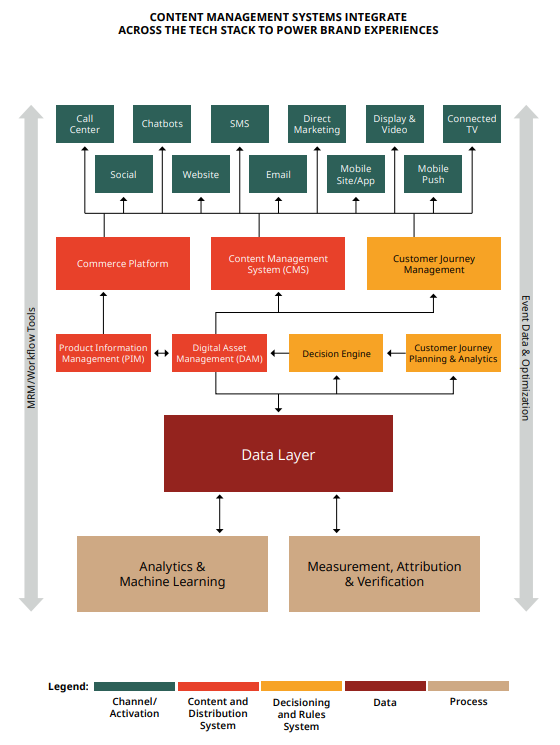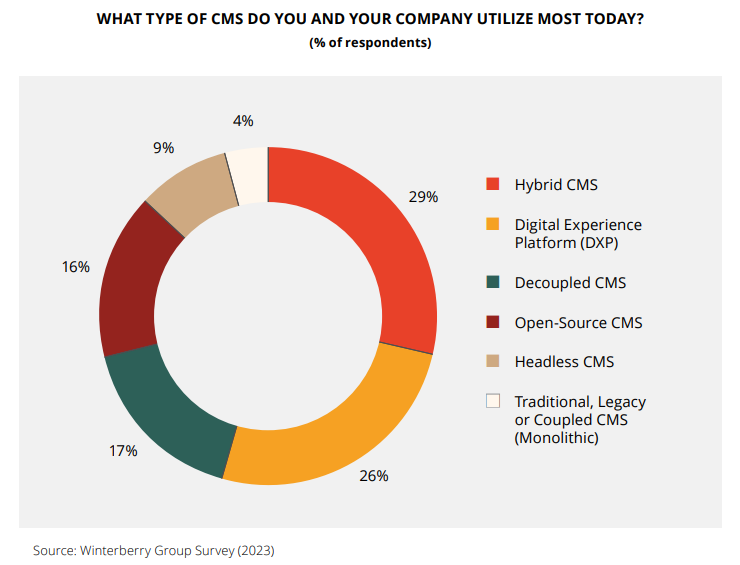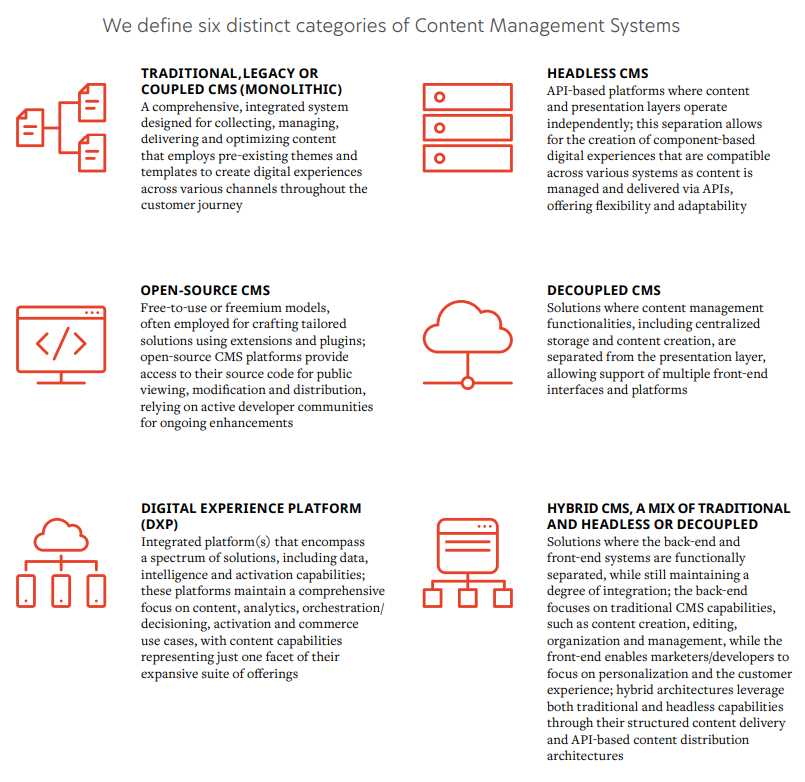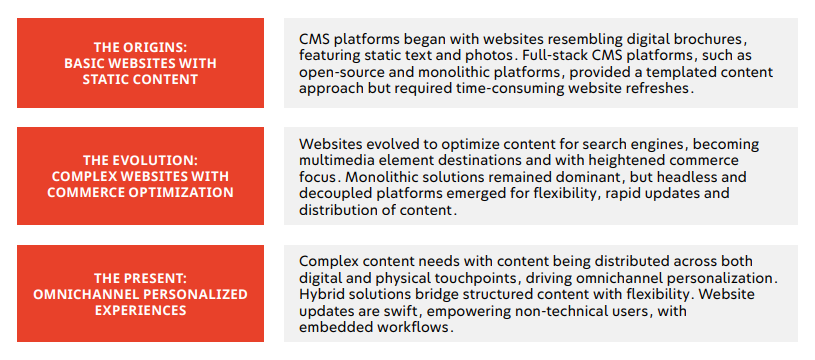Maximizing CMS for omnichannel experiences | Bright Spot
|
 The contemporary CMS landscape is extensive, catering to a myriad of user needs across online and offline realms. While CMS platforms share core functionalities like content creation, management, and presentation, distinctions arise in their adaptability, customization, and integration capabilities. Many organizations employ multiple CMS tools to address their complex content requirements.
The contemporary CMS landscape is extensive, catering to a myriad of user needs across online and offline realms. While CMS platforms share core functionalities like content creation, management, and presentation, distinctions arise in their adaptability, customization, and integration capabilities. Many organizations employ multiple CMS tools to address their complex content requirements.
Hybrid CMS and Digital Experience Platforms (DXP) are among the most favored options, collectively chosen by about 55% of organizations.
Remarkably, there’s been a notable surge in hybrid CMS and DXP adoption, with 58% of organizations adopting one of these platforms in the past year. Of those selecting a CMS recently, 42% opted for hybrid solutions, while merely 4% chose traditional CMS.
This trend reflects evolving market dynamics and users’ transition from monolithic legacy tools to flexible headless or composable CMS solutions.
Organizations are liberating themselves from monolithic constraints, embracing composable solutions that retain content management capabilities while offering greater flexibility for delivering unique digital experiences.

SEVERAL MARKET FORCES HAVE INFLUENCED CMS ADOPTION AND THE EVOLUTION OF THESE PLATFORMS:
The proliferation of channels has heightened marketers’ focus on ensuring consistent brand experiences across a diverse array of channels. To achieve this alignment between channels and content elements, organizations seek CMS platforms capable of ensuring consistent brand experiences across key channels, including websites (88%), email (72%), and display (64%).
For omnichannel personalization to be executed at scale and speedily, organizations require a centralized content repository that can efficiently deploy content to multiple endpoints, ensuring consistent omnichannel experiences. About 41% of organizations prioritize CMS platforms with integrated personalization capabilities, encompassing content management, deployment, marketing automation, and customer relationship functionalities.
With a growing emphasis on delivering consistent and engaging experiences across online and offline channels, organizations face various challenges in content creation, management, and distribution. These challenges include legacy technology (47%), scattered data and content assets (45%), and budget and time constraints (44%).
The expansion of commerce beyond traditional brick-and-mortar setups to e-commerce, m-commerce, and social commerce underscores the need for CMS solutions that bridge the gap between in-person and online realms. Over 40% of organizations have integrated their CMS with Marketing Automation or Commerce Platforms, highlighting the significance of robust partner integrations in enabling real-time content delivery, fostering unique user experiences, and supporting agile content deployment.
Understanding these dynamics highlights the critical role of CMS platforms in shaping seamless cross-channel interactions in today’s digital landscape.
Unlock deeper insights! Dive into the full report for a comprehensive understanding. Plus, download your copy now to stay ahead of the curve.
The Table of Contents of “Maximizing CMS for omnichannel experiences” Report :
- Executive Summary
- Introduction: What is a Content Management System (CMS)?
- The Evolution and Drivers of CMS Platforms
- CMS Platform Use Cases
- Traditional, Monolithic CMS
- Open-Source CMS
- Digital Experience Platforms (DXP)
- Headless and Decoupled CMS
- Headless CMS
- Decoupled CMS
- Hybrid CMS
- Challenges and Considerations of CMS Platforms
- Total Cost of CMS Ownership
- The Outlook for the CMS Market
- Key Considerations for CMS Selection
- Organizational Decision Makers
- Glossary
- Methodology
Number of Pages:
- 28 pages
Pricing:
- Free
Methodology
The insights in this report were validated by extensive industry research, including a survey conducted in July 2023 of 154 experienced US-based decision makers and influencers of CMS tools, with both technical and non-technical backgrounds, appertaining to a broad array of industries, business sizes and organizational functions.
We are indebted to the diverse set of industry experts who provided their opinions in interviews conducted between June and August 2023.







